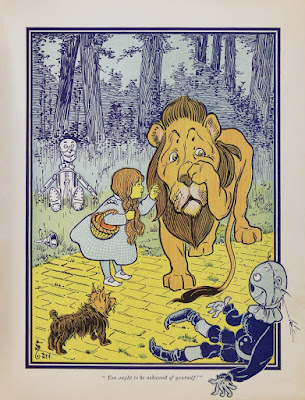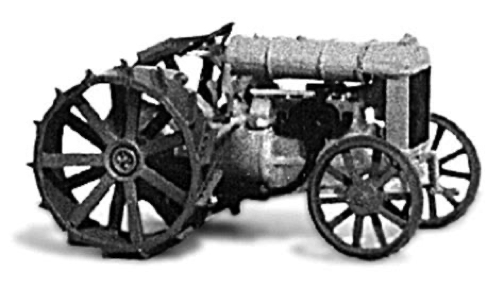Tuesday, June 29, 2021
Wherever You Go
Monday, June 28, 2021
The Great Awakening (Revelation 8)
Tuesday, June 22, 2021
Virtue-signaling
“When you do a good deed, do not sound a trumpet before you as the hypocrites do in the synagogues and in the streets, that they may have glory from men. Assuredly, I say to you, they have their reward" (Matthew 6:2).
Wednesday, June 16, 2021
E-Musing: Courage
"We take courage in God; for He will tread down our foes." —Psalm 108:13
To fight aloud is very brave,But gallanter, I know,Who charge within the bosom,The cavalry of woe.
Monday, June 14, 2021
The Fordson
It was in 1945, I think, that my father turned up one afternoon driving an ancient, rusted out, dented, Fordson tractor that he bought from a neighbor for a few hundred bucks. It was an unsightly piece of equipment and, in my opinion, should have been placed in the Smithsonian.
666
“Then I saw another beast coming up out of the earth, and he had two horns like a lamb and spoke like a dragon… He causes all, both small and great, rich and poor, free and slave, to receive a mark on their right hand or on their foreheads, and that no one may buy or sell except one who has the mark or the name of the beast, or the number of his name. This is wisdom. Let him who has understanding calculate the number of the beast, for it is the number of man: His number is 666” (Revelation 13:11, 16-18).
John is describing a religion of his day but also one that transcends the ages. 666 is with us today.
666 Is a symbolic number, derived from the apocalyptic numerology of John’s day: 6 is the number of man. 3 is the number of God. 6 repeated 3 times stands for .”Man exalted as God.” This is Humanism, Satan’s boldest lie: “You can be like God” (Genesis 3:5). This is the major religion of all time, the human compulsion to explain and solve the complexities of life apart from God. We can do it all by ourselves.
Men and women devise systems that correctly define and diagnose the societal problems of the day but they always fall short for they do not understand “the mystery of iniquity,” a concept that can only be understood by revelation: Evil is deep and dark and far beyond human intervention. It can only be healed through the power and the wisdom of God
Paul writes, “Has not God made foolish the wisdom of this world? For since, in the wisdom of God, the world through wisdom did not know God, it pleased God through the foolishness of the message preached to save those who believe. For Jews request a sign, and Greeks seek after wisdom; but we preach Christ crucified, to the Jews a stumbling block and to the Greeks foolishness, but to those who are called, both Jews and Greeks, Christ the power of God and the wisdom of God. Because the foolishness of God is wiser than men, and the weakness of God is stronger than men.” (1Corinthians 1:20-25).
The “wise” invent well-meant schemes to deal with the inequities of our broken world and it’s systems, but all fail because they have no power to change the human heart. Tear down one racist, sexist, (ageist 😬) system and fallen men and women will erect another unjust system in its place. (History amply underscores this conclusion.) But where the cross has been preached and received, hearts are changed and, in time, inequities are righted.
Only the “foolishness of God” can change human hearts and institutions. Thus “we preach Christ crucified: The power of God and the wisdom of God.
David Roper
6.11.21
Tuesday, June 8, 2021
Systemic Evil
Saturday, June 5, 2021
The Worm at the Core
Going and Not Knowing
"By faith Abraham obeyed when he was called to go out to a place that he was to receive as an inheritance. And he went out, not knowing...
-
Gerontion[1] T. S. Eliot The tiger springs in the new year. Us he devours. Think at last We have not reached conclusion, when I Stiffen in...
-
"By faith Abraham obeyed when he was called to go out to a place that he was to receive as an inheritance. And he went out, not knowing...
-
“Instead of…” "Instead of the thorn, a cypress tree will spring out of the ground; instead of a thistle, the myrtle bush—a living and...

